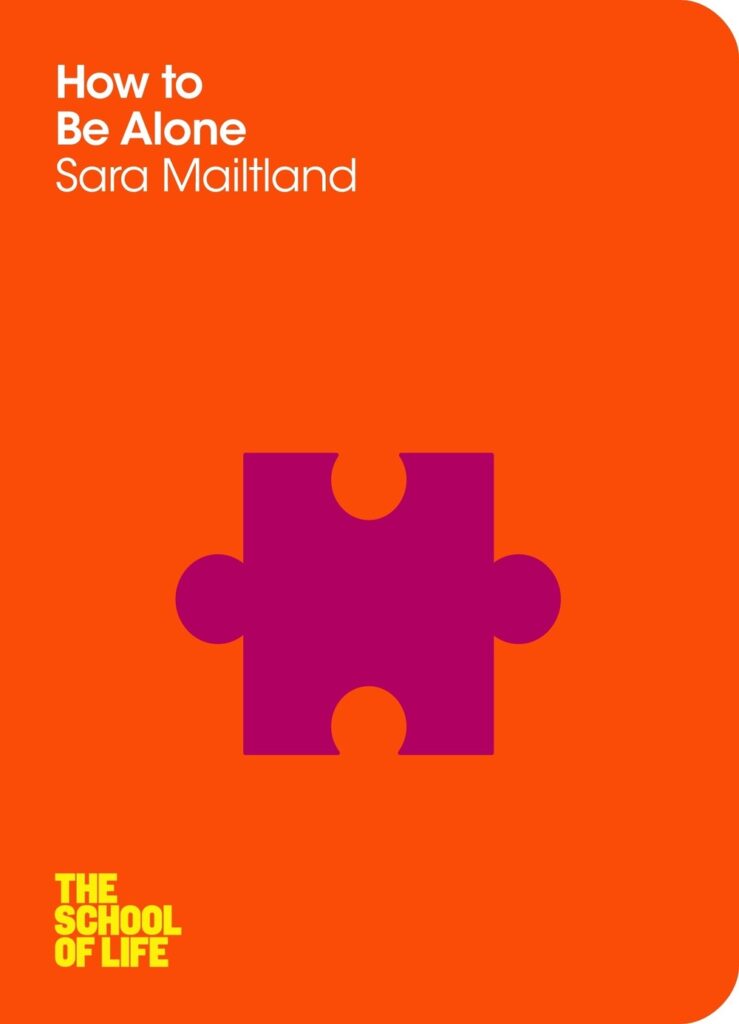Sharing my learnings from the book, How to Be Alone by Sara Maitland.
How to Be Alone by Sara Maitland
Our fast-paced society does not approve of solitude; being alone is antisocial and some even find it sinister. Why is this so when autonomy, personal freedom, and individualism are more highly prized than ever before? In How to Be Alone, Sara Maitland answers this question by exploring changing attitudes throughout history. Offering experiments and strategies for overturning our fear of solitude, she helps us practice it without anxiety and encourages us to see the benefits of spending time by ourselves. By indulging in the experience of being alone, we can be inspired to find our own rewards and ultimately lead more enriched, fuller lives.

- We should not be scared of solitude. There are many benefits and joys to be found on being alone.
- Solitude is an immensely powerful and positive thing. Those who truly experience it, can be, in fact, far healthier & more relaxed than the rest of us
- When you’re alone, you can focus on a deeper understanding of who you are and what matters to you. Only by spending time alone, free of outside influences, can you discover these important parts of yourself
- Many creative people in various fields have recognized solitude as a main source of creative output. Make sure you schedule yourself some alone time and reap the joys of solitude.
- One of the best ways to find seclusion is to escape from the city and enter nature. By immersing yourself in nature, you can find a sense of connectedness to the world around you. To achieve this, you should make sure you are completely alone to free yourself of distractions. People who have had this beautiful experience call it transcendence or an interaction with something that goes beyond the conscious mind.
- To people who choose solitude as a way of life, they are often looked down upon. Philip Koch, a philosophy professor, researched the negative reactions to solitude in his book Solitude. He found that, due to human evolution finding success through companionship, people have an inherent reaction to solitude as being unnatural.
- Ultimately, these views are an unfair social stigma. If one desires the freedom of solitude, they should embrace it. After all, the problems of society don’t have to influence your own pursuit of happiness.
- In order to be alone, you have to recognize & overcome your fears of solitude
- it’s important to identify any fears you might have about being alone. You can overcome these fears by simply giving yourself small doses of alone time that test your comfort levels.
- There are easy ways to squeeze more alone time into your life
- spend more time focused on solitary activities you already enjoy
- take solitary walks in nature. Such walks are the perfect way to give yourself time to reflect, connect with nature & feel better about the idea of being alone.
- choose a challenging but achievable trip that you can do on your own.
- Once we enter the world of schools and social pressures, we can lose the sense of safe alone time & our ability to happily experience solitude. But it doesn’t have to stay this way. We can get our safe alone time back by learning how to engage with our active imagination & daydreaming
- In today’s society, it’s more common for parents to teach their children about the dangers of being alone. We should, however, be more concerned about creating a safe environment for children to spend time in on their own.
- give toddlers alone time: give them space outdoors in parks or even in the woods where they can explore independently under your supervision.
- Let kids enjoy stories where children encounter danger by themselves. These stories are important for teaching children that, even if they are alone, they still have the strength to overcome challenges.
- The amount of solitude a person needs differs from one person to another.
- determine how big or small your dose of alone time should be
- the division between extroverts and introverts is nearly impossible to test given that most people will respond differently depending on the context
- these categories are culturally biased. For example, introversion is appreciated in Japanese culture, whereas extroversion is highly valued in the United States.
- There’s a wide range of traits that make each of us different and unique.
- Choose what works for you. Our society values individualism and unique differences and the same should apply to our solitude.


Leave a Reply